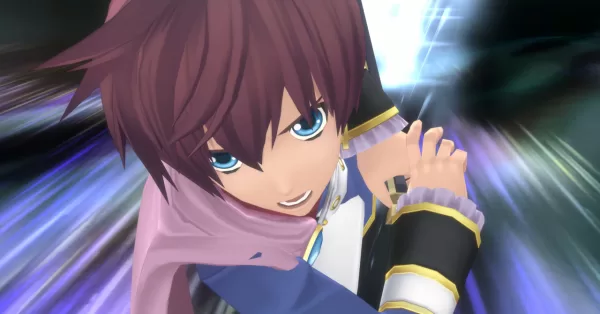Tales of Graces f Remastered Producer shares what made remastering the game difficult
Even though it's not a full remake, the Tales of Graces f remaster was still quite a challenge to develop.

After getting to try a hands-on demo of the game, we got to talk to the producers of Tales of Graces f Remastered, and we asked them about the development of this enhanced edition of a beloved Tales title.
Specifically, we attended a media roundtable interview with Yusuke Tomizawa, General Producer of the Tales of series, and Yuki Ishikawa, Producer of Tales of Graces f Remastered. For most of our questions though, it was Ishikawa who took the mic.

L-R: Yusuke Tomizawa, General Producer of the Tales of series, and Yuki Ishikawa, Producer of Tales of Graces f Remastered
Perhaps the biggest question among all of us in attendance was why Graces? After all, if you ask international fans, chances are that the remaster that they want the most is Tales of Xillia. In response, Ishikawa said that Graces was chosen because it was what Japanese fans of the series wanted to see get a re-release the most.
Instead of simply porting the game though, Bandai Namco decided to give Graces the remaster treatment. As it’s a remaster, there are plenty of enhancements, though the game plays pretty much the same as the original.
Given this, the question that I wanted to ask next was how difficult the remastering process is for the game. On one hand, since it’s very much the same game, the process may not have been too difficult. But on the other hand, the original Tales of Graces f was made for the PS3 which was infamous for its Cell architecture.

When I asked Ishikawa this, he remarked that they did indeed face difficulties with remastering Tales of Graces, but not just because it was originally a PS3 title.
“Not just because it came from the PlayStation 3, but in general, coding is a very difficult step within the development of the game,” explained Ishikawa. “There are a few key reasons, one being from a gaming library standpoint. You need to accommodate six different gaming platforms, and that can always be a challenge. Secondly, the previous game was built during the Namco days, so it used a different game engine as well. Once you port the game, that doesn’t mean that your job is over. In development, you still need to optimize and test rigorously.”
This combination of the game being released on multiple platforms coupled with the old engine is definitely a major hurdle, though it’s not the only one. The other challenge is something I didn’t really think about – languages.

For this remaster, Bandai Namco and the Tales development team decided to add support for 10 languages. More than the translation process, Ishikawa mentioned that this also caused difficulty when it came to displaying the text.
Ishikawa explained:
“Another point of difficulty that we faced adding additional languages. Let’s say for example, while the text in English or Japanese may fit in the speech bubble, that may not be the case with other languages. This means we need to extend the speech bubble, causing the bubble to cover the entire face of some characters or certain areas. That’s not going to give a good user experience.
“So, there’s a need for the development team to come back and adjust. Though the question is when do you need to cut the sentences and go to the next line?”
Even though adding support for 10 languages took up a lot of time and effort, making the game more accessible to players around the world is a key goal for the developer with this remaster.
This is also the reason why the team decided to include scenes that were only available in the Japanese version of Tales of Graces f, making the remaster the definitive version of the game.
“In today’s world, we and Bandai want to make sure that when we create a new game, it is enjoyed by the players around the world, all at the same time,” said Ishikawa. “Previously, it was like Japan launches first, and then subsequently, players around the world get to enjoy the games. But now, we have the means and capability to distribute games at the same time [around the world].”

Given the wide language availability, coupled with the game’s enhanced visuals and additional quality-of-life features, this new version of Tales of Graces f promises to delight long-time fans, as well as those new to the series who got into it recently thanks to Tales of Arise.
Tales of Graces f Remastered will be released on PS5, PS4, Xbox Series X|S, Xbox One, Nintendo Switch, and PC via Steam on January 17, 2025.

